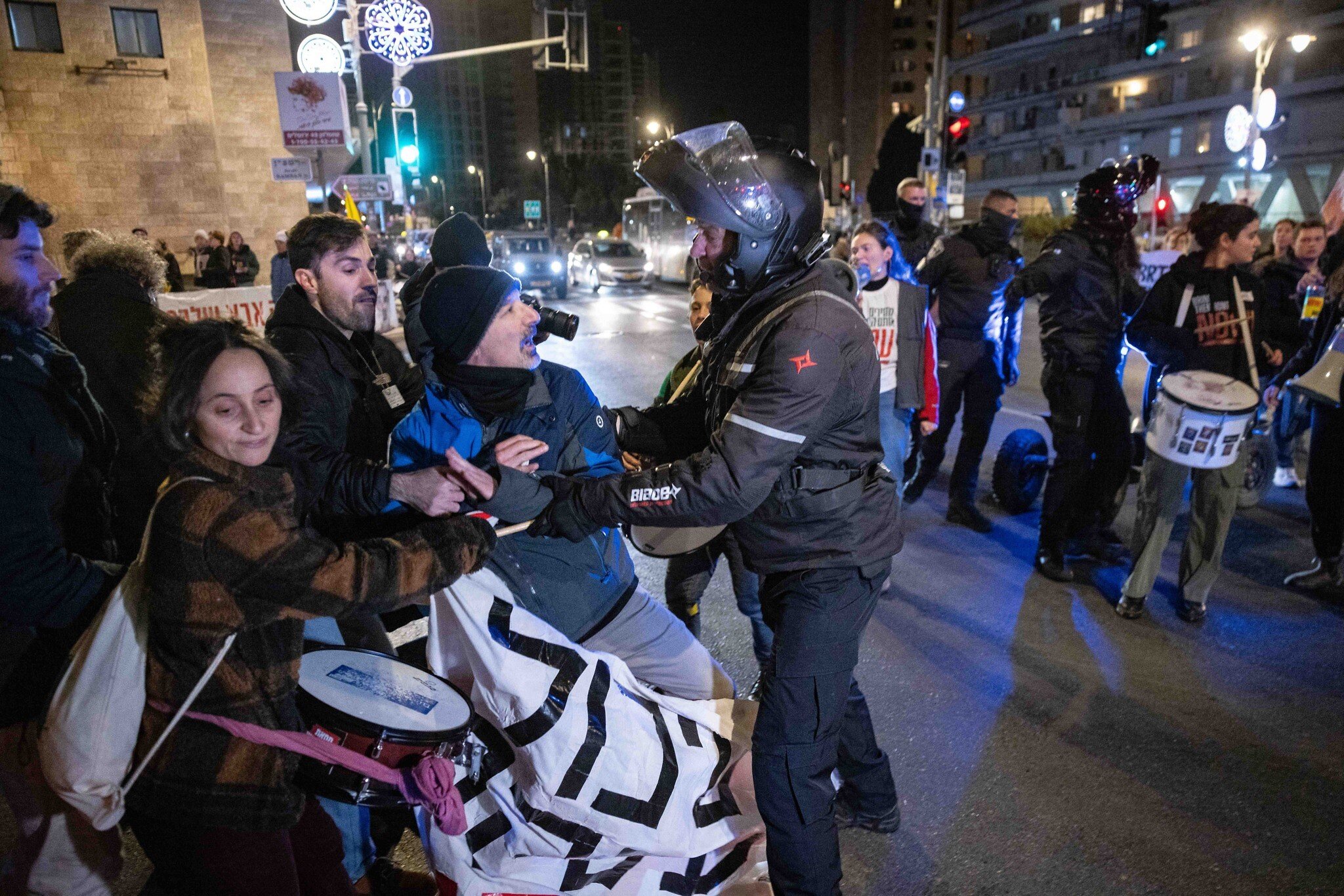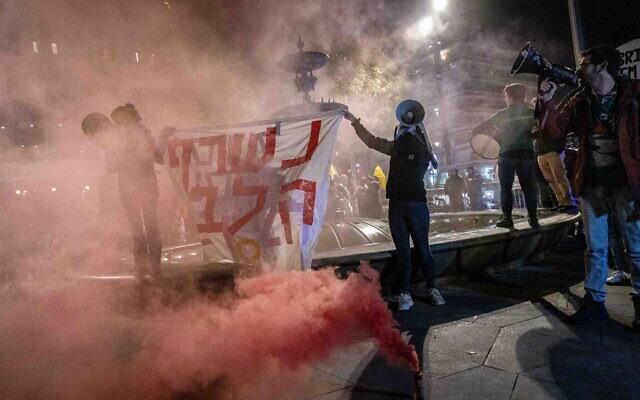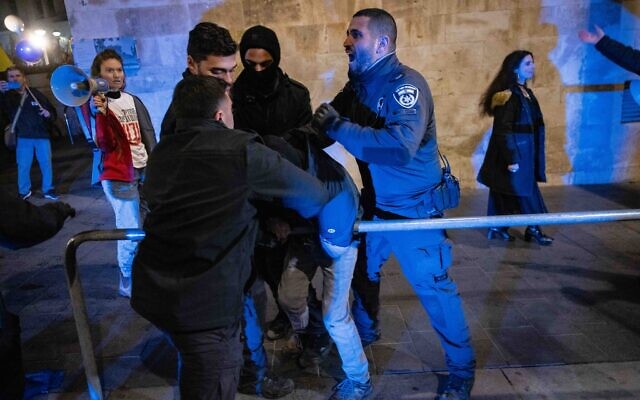



The Jerusalem Magistrate’s Court rejected on Sunday a police request to obtain access to the phones of anti-government demonstrators who had been arrested, saying the crime they are suspected of, disturbing the public order, did not justify such measures.
The activists’ attorney remonstrated strongly against the intrusive action, insisting it bore no connection to the violation they were accused of and warning that it would open the door to further abuse of such powers by the police.
The judge also rejected the police’s request to bar the activists from participating in protests outside the homes of public figures and its requested restraining order against them from Jerusalem.
In a second setback for the police, the same judge rebuked the force for holding an anti-government protester overnight in a women’s prison in Ramle, without justification, in violation of police procedure.
The woman was arrested for disturbing the public order and the unlawful use of fire or flammable substance for using what the police said was a smoke grenade, but what the judge determined to be a legal smoke candle.
The judge rejected the police’s claims that the woman was dangerous and said that she therefore should not have been detained overnight, but released on restricted conditions.
The police arrested five activists in Jerusalem on Saturday following demonstrations held outside the Prime Minister’s Residence in Jerusalem, and in Kikar Safra outside City Hall, calling for a deal for the release of the hostages held by Hamas in Gaza.
In the arrest of the activists from the Prime Minister’s Residence protest, police officers in a patrol car first detained and questioned the protesters, just after they left the demonstration in their vehicle, but then sent them on their way.
Several minutes later the same patrol car pulled them over again, searched the car for an effigy that had been used at the protest, and although they did not find it or anything else incriminating, they arrested the four activists.
The police’s justification for the request to obtain access to their cell phones was to check whether there had been “illegal organization ahead of the demonstration.”
The police representative said in court in reply to a question from Judge Chavi Toker that the only illegal activity at the demonstration committed by the activists was “disturbing public order” and the unlawful use of a megaphone.
Attorney Yoni Nussbaum who represented the activists objected strongly to the police’s request, saying it bore no connection to the allegations against the protesters adding “Tomorrow morning, they’ll take everyone’s phone from them.”
He also objected to the strict conditions for release set by the police including a restraining order from being present in Jerusalem for 15 days and a ban on participating in a protest against a public figure for 15 days.
Toker said that the allegations against the protesters did not justify the police request to gain access to their phones, and rejected the measure.
She also rejected the police’s request for a ban on the suspect’s participation in protests against public figures.
In the hearing for the woman arrested for the use of the smoke candle at the demonstration in Kikar Safra, the police representative conceded that the smoke device the woman used was not dangerous, but accused her of having thrown it during the protest.
The woman was arrested on charges of the unlawful use of fire or a flammable substance, and for disturbing the public order.
Nussbaum, who represented this protester as well, insisted that the video footage the police representative showed the court did not show her throwing the object, and said that it was a completely legal smoke device available for purchase in regular shops for around NIS 50.
Nussbaum also pointed out that when he got to the police station at 12:30 a.m., the woman was ready to admit to the charges, and that there was therefore no need to detain her overnight in prison.
“I cannot understand why she was [held] overnight in Neve Tirtza [women’s prison]. Why?” demanded the lawyer.
Toker appeared to side with Nussbaum, saying that in light of the fact that the woman was not dangerous, “the [police] officer has no authority to detain, even until the detainee is brought before the court.”
She added that the proper procedure was to establish restricted release conditions at the police station, not while the suspect is in prison.


